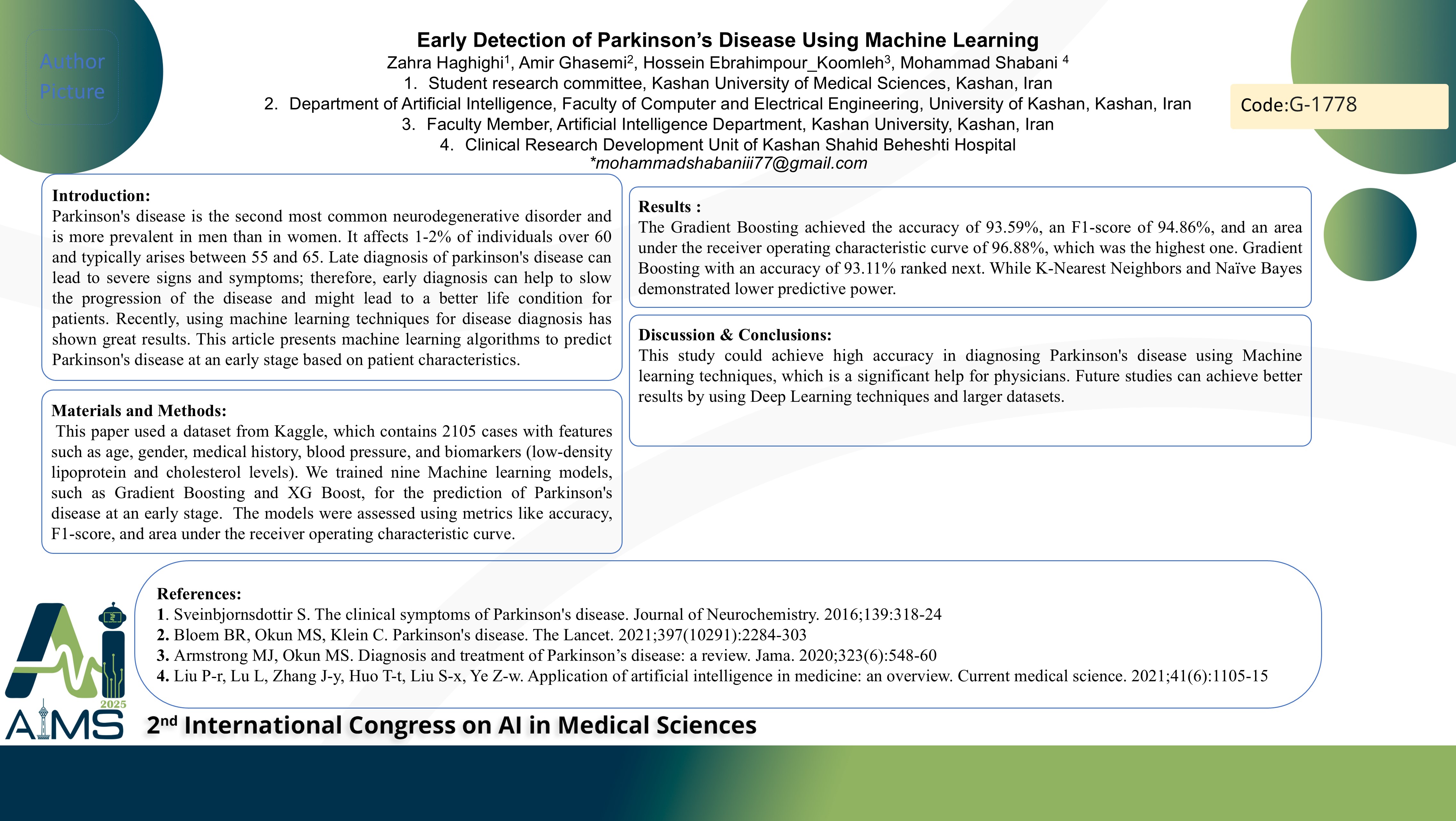Early Detection of Parkinson’s Disease Using Machine Learning
Code: G-1778
Authors: Zahra Haghighi ℗, Amir Ghasemi, Hossein Ebrahimpour_Koomleh, Mohammad Shabani *
Schedule: Not Scheduled!
Tag: Biomarker Discovery
Download: Download Poster
Abstract:
Abstract
Background and aims: Parkinson's disease is the second most common neurodegenerative disorder and is more prevalent in men than in women. It affects 1-2% of individuals over 60 and typically arises between 55 and 65. Late diagnosis of parkinson's disease can lead to severe signs and symptoms; therefore, early diagnosis can help to slow the progression of the disease and might lead to a better life condition for patients. Recently, using machine learning techniques for disease diagnosis has shown great results. This article presents machine learning algorithms to predict Parkinson's disease at an early stage based on patient characteristics. Method: This paper used a dataset from Kaggle, which contains 2105 cases with features such as age, gender, medical history, blood pressure, and biomarkers (low-density lipoprotein and cholesterol levels). We trained nine Machine learning models like: Gradient Boosting and XG Boost, for the prediction of Parkinson's disease at an early stage. The models were assessed using metrics like accuracy, F1-score, and area under the receiver operating characteristic curve. Results: The Gradient Boosting achieved the accuracy of 93.59%, an F1-score of 94.86%, and an area under the receiver operating characteristic curve of 96.88%, which was the highest one. Gradient Boosting with an accuracy of 93.11% ranked next. While K-Nearest Neighbors and Naïve Bayes demonstrated lower predictive power. Conclusion: This study could achieve high accuracy in diagnosing Parkinson's disease using Machine learning techniques, which is a significant help for physicians. Future studies can achieve better results by using Deep Learning techniques and larger datasets.
Keywords
Parkinson’s Disease Diagnosis, MachineLearning, GradientBoosting, DeepLearning
